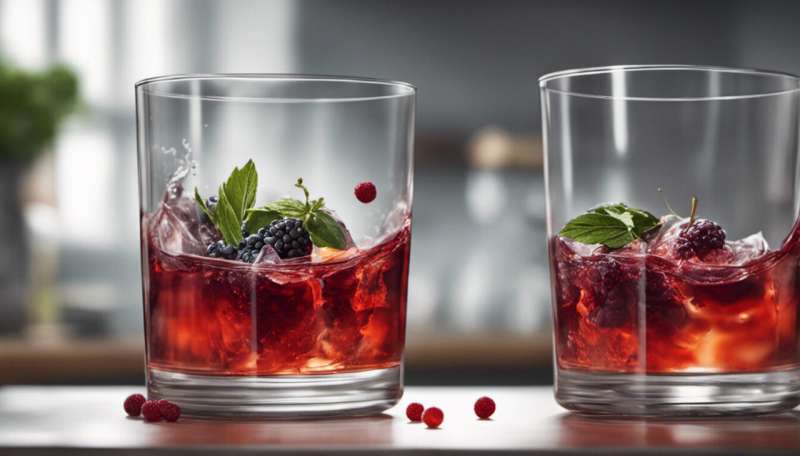This article has been reviewed according to Science X's editorial process and policies. Editors have highlighted the following attributes while ensuring the content's credibility:
fact-checked
trusted source
written by researcher(s)
proofread
A fruit fly has landed in your wine—is it OK to drink?

You pour a chilled glass of your favorite sauvignon blanc and are about to take a sip when a fruit fly lands in it. The fly is clearly dead. But given what you know about where flies hang out, you wonder if it's safe to drink.
Despite their salubrious sounding name, fruit flies (Drosophila species), eat food that is decaying. They inhabit rubbish bins, compost heaps or any place where food is present, including drains. Rotting food is rich in germs, any of which a fly can pick up on their body and transfer to where it next lands.
These bacteria include E coli, Listeria, Shigella and Salmonella, any of which can cause a potentially serious infection in even healthy people. The fruit fly, you realize, may have just deposited potentially lethal microbes in your wine, so you toss it in the sink and pour a fresh glass.
However, the scientific evidence suggests you may have just wasted a good glass of wine. Wine has typically between 8% and 14% ethanol and has a pH of around 4 or 5—a pH below 7 is considered acidic.
Alcohol is well known to be inhibitory to germs and is one reason wine can be stored for so long. Several laboratory studies have also shown that the combined effects of wine alcohol and organic acids, such as malic acid, can prevent the growth of E coli and Salmonella.
Whether the germs transmitted by the fruit fly into the wine can cause an infection depends on the number of bacteria deposited (the "infectious dose") and how metabolically fit the germs are. The wine the fruit fly entered was also chilled, which some food poisoning bacteria find shocks their metabolism so profoundly it stops them growing.
As all types of wine (red, white or rosé, whether chilled or room temperature) are naturally antibacterial, germs in wine are likely to become damaged, which will reduce their infection fitness. This suggests that while the germs deposited into wine by the flies might be present in a dose high enough to cause illness, they are not likely to cause an infection as they are too damaged. So, in all likelihood, the contaminated wine could be drunk without ill effect—whether it was chilled or not.

Then it has the body to contend with
And if not damaged directly by the wine, any germs still alive from the fruit fly deposit will encounter the highly acidic fluids of the human stomach.
Food poisoning germs are highly sensitive to acid, which damages their DNA, and stomach acid can even kill them. In the stomach, germs must also overcome other deadly barriers such as digestive enzymes, entrapping mucus and the ever-watchful immune system defenses. Fly-deposited wine germs are unlikely to be able to set up an infection.
Unless you are germ-phobic, I would suggest removing the fly and drinking the wine. If you want the extra protein, you could even swallow the fly.
The fruit fly is unlikely to change the taste of the wine, even if there are several of them. Your digestive system will simply process the fly like any other protein. Salud!
This article is republished from The Conversation under a Creative Commons license. Read the original article.![]()




















